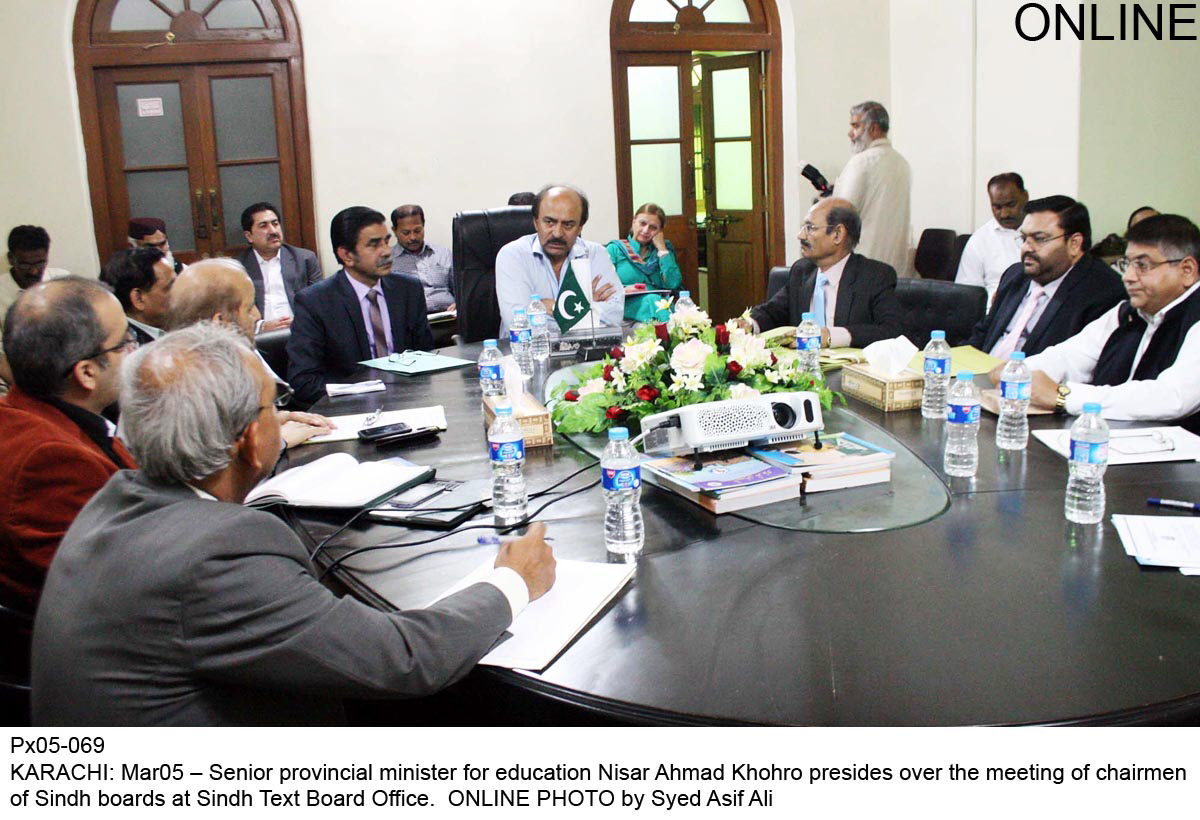
KARACHI:
Though Sindh Chief Minister Syed Qaim Ali Shah and his successors will no longer be able to make direct appointments for the top job at provincial education boards, the viability of this decision depends largely on the credibility of the search committee.
On Monday, the chief minister, who happens to be the controlling authority of provincial education boards, has approved a new mechanism for the selection and appointment of chairpersons at secondary and higher secondary education boards of Karachi, Hyderabad, Sukkur, Mirpurkhas and Larkana.

The selection board for the appointment of chairpersons will, however, be conducted by the search committee for the selection of vice chancellors at the public-sector universities.
In case of a future vacant position for a chairperson, the search committee will invite applications by advertising the post through the media. After scrutinising the applications, the committee will shortlist the best candidates, who will be invited for interviews. The name of the committee’s selected candidate will then be recommended to the chief minister for approval.
Earlier, with ratification of the controversial Sindh Universities Law (Amendment) Act on August 28, 2013, the academic search committee formed by Sindh Governor Dr Ishratul Ebad Khan was dissolved as the new law took away the discretionary powers of the governor in appointing vice-chancellors of public sector universities and empowered the chief minister to take over the administrative, financial and academic control of the provincial institutes of higher education.
In place of the former search committee that included academicians, such as the Institute of Business Administration director Dr Ishrat Husain, Karachi University vice-chancellor Dr Muhammad Qaiser, Dow University of Health Sciences vice-chancellor Prof. Masood Hameed Khan, Sindh Agriculture University vice-chancellor Dr AQ Mughal as well as former chief justice of Federal Shariat Court Haziqul Khairi and a representative of the Higher Education Commission (HEC), the chief minister formed his new four-member committee on October 24, last year.
In place of academics, the inclusion of names, such as Dr Azra Fazal Pechuho, a sister of the Pakistan People’s Party co-chairperson Asif Ali Zardari, Dr Asim Hussain, a close friend of former president Asif Zardari and chief minister’s own secretary for universities and education boards, drew criticism from the academic quarters. The lone academician in the new search committee is Prof. Mazarhul Haq Siddiqui, former vice-chancellor of the Sindh University.
Former HEC chairperson Prof. Dr Attaur Rehman, while terming the ‘ever-present political influence’ as the main cause behind the deterioration of education at school, college and university level said that the Sindh government is working to strengthen its political influence in the education sector.
“The decisions taken by the search committee will hardly be respected by the academic quarters unless it holds a majority representation by top academicians of national and international repute,” said Dr Rehman, while talking to The Express Tribune.
Prof Ferozuddin Siddiqui, Karachi region head of the Sindh Professors and Lecturers Association, was of the view that the chief minister’s decision of delegating powers to a search committee will bear no positive fruits unless freed from political influence. “The present members will very likely be used for implementing the political will of certain quarters rather than safeguarding merit,” said Prof Siddiqui.
Published in The Express Tribune, March 6th, 2014.





























































COMMENTS
Comments are moderated and generally will be posted if they are on-topic and not abusive.
For more information, please see our Comments FAQ